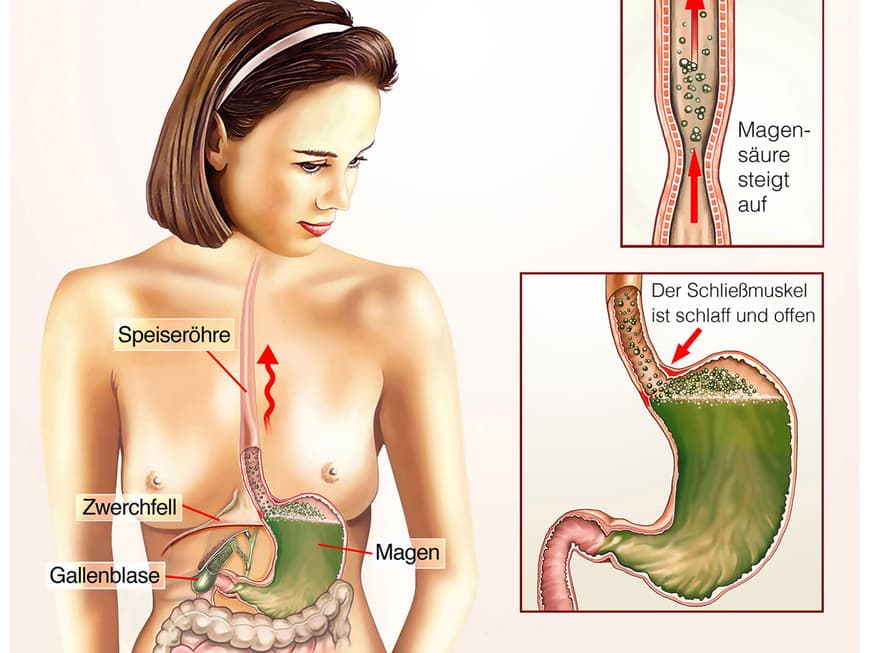Symptoms and causes of heartburn
Heartburn is caused by excess stomach acid rising into the oesophagus. This is often caused by a weakened sphincter muscle (oesophageal sphincter) at the junction of the oesophagus and stomach.
When swallowing, this passage opens so that food can enter the stomach. It then closes again, preventing the contents of the stomach from rising into the oesophagus. If this sphincter no longer works properly, stomach acid enters the oesophagus. This causes an unpleasant, burning sensation.
Reflux: too much stomach acid
In reflux disease, the amount of ascending stomach acid is always pathologically increased and the heartburn becomes chronic. This can be dangerous because the oesophagus is damaged in the long term and oesophageal cancer can develop. Avoiding coffee, fatty or sweet foods and alcohol helps those affected. Anyone who regularly suffers from heartburn should be checked by a doctor.


